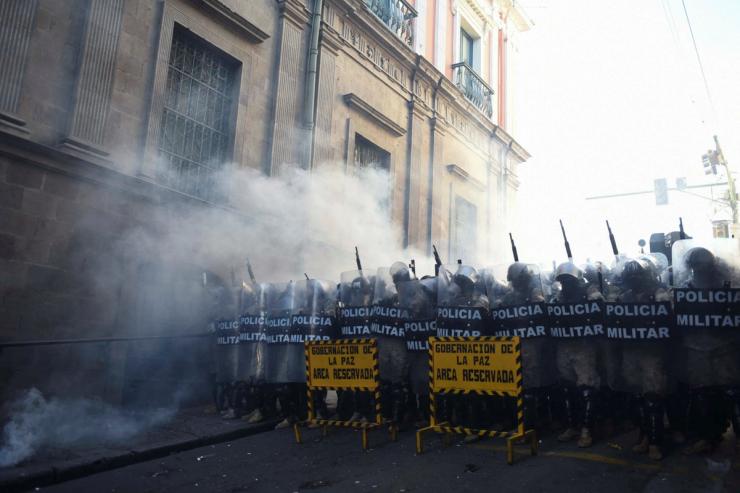The News
Bolivian police arrested Gen. Juan José Zúñiga following an apparent attempted coup, hours after soldiers stormed the presidential palace in La Paz.
Current President Luis Arce condemned the move as an “irregular mobilization” and former President Evo Morales described it as a “coup.”
Zúñiga was removed from his post as army chief earlier this week after making disparaging comments about Morales. The general said on Tuesday that the “armed forces intend to restructure democracy, to make it a true democracy and not one run by the same few people for 30, 40 years.”
SIGNALS
‘Ill-judged’ coup attempt, rather than real threat to power
Zuñiga’s attempted insurrection against the government looks to have been “a short-lived and ill-judged military uprising rather than any wider unravelling of power,” the BBC noted. What remains to be seen, however, is whether the coup was an isolated incident or if the government may now face future threats. Arce’s government will appear weaker after the failed putsch, and “others may try to dislodge Mr Arce’s administration - albeit through politics rather than via the military,” the BBC wrote.
Bolivia has a long history with coups
Bolivia is familiar with coups: The country has had the most attempted coups in the world, garnering the presidential palace the nickname “the burnt palace,” El País noted. Bolivia has seen 23 coups since 1950, but 12 were failed attempts. “Depending on how it is counted, there are an extraordinary number of coups d’état,” Bolivian historian and journalist Robert Brockmann told El País. “If it is by number of presidents, you can’t really take them all into account because some lasted half an hour.”
Surviving the attempt gives Arce’s government a win
Arce’s popularity has taken a turn in recent months, as his government struggles to rectify the nation’s dipping economic outlook. The coup shows the public’s discontent with the government, one analyst told Bloomberg — but that Arce was able to survive it also offers him a much-needed win. “The government emerges strengthened from this,” Carlos Toranzo, a political analyst, told Bloomberg. “Obviously, it’s likely to use this to try to quell demands from social sectors.”


